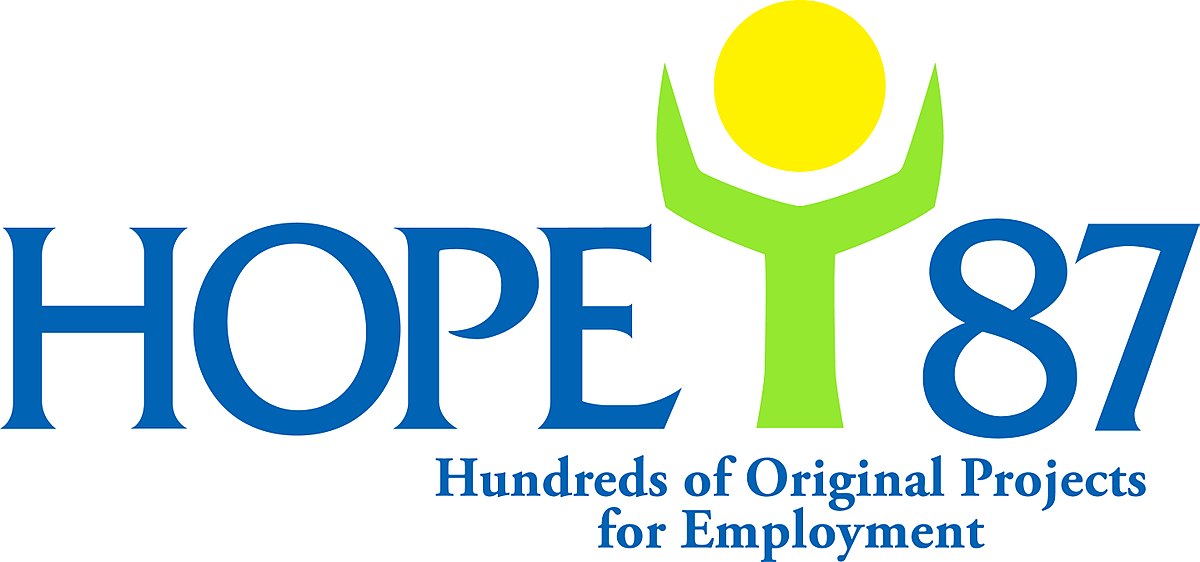ABOUT US
HOPE’87 – Hundreds of Original Projects for Employment – is an Austrian non-profit initiative for the support of youth employment and youth training projects worldwide. It was founded in 1987 following the recommendations of the UN General Assembly and the UN Youth Year of 1985. Young people are encouraged to show self-initiative and to realize their own ideas of small and medium scale projects, creating training and employment possibilities for themselves and other young people.
HOPE’87 supports young people through project implementation, technical assistance, know-how transfer and consultancy.
Mandate
“…to counter the global problem of youth unemployment and its political, economic and social consequences by means of financial and technical assistance in the framework of direct or indirect youth training and employment programs, both in urban and rural areas; to increase international awareness and attain synergy effects through alliances and especially co-operation with the United Nations, …”
TARGET GROUP
The definition of the concept of “youth” is dependent on the different cultural and social contexts involved. Projects on the local level have to be adapted to the broader social requirements, since the HOPE’87 target group – young people – are often project partners who must be regarded as belonging to an integrated system of social ties with responsibilities, duties and (few) rights.
Therefore, in order to ensure the positive impact of a project, every effort has to be made to involve all members of the social environment the programme is concerned with, even beyond the direct framework of the project: religious leaders, elders council, elected representatives, interest groups and the village community.
This is how youth employment and youth training programmes can contribute to the objectives of a demand-driven development co-operation and its commitment to the fight against poverty and to contribute to the Sustainable Development Goals.
DEVELOPMENT COOPERATION
SUPPORT FOR CHILDREN AND YOUNG PEOPLE, ESPECIALLY FROM MARGINALIZED GROUPS OF SOCIETY, IN THE FORM OF:
- improved access to formal and informal education
- improved school infrastructure and education facilities
- vocational and technical training
- access to information, counseling and micro-credit facilities, especially – though not exclusively – in the informal sector
- promotion of small enterprises through management training, start-up and investment credits
- capacity building for local partners, relevant networks and organisations.
RURAL DEVELOPMENT
- sustainable management and protection of natural resourcesimproved access to formal and informal education
- diversifying, stabilysing and improving ecologically sustainable production through adequate resource protection
- education and specialised training of young people in rural area, both in agricultural and non-agricultural sectors
- access to information and credit facilities.
DISASTER PREVENTION AND HUMANITARIAN AID
Special attention is given to humanitarian projects such as in war and post-war countries, as well as areas affected by natural disasters. However, the provision of essential goods, shelter, food and medical care is always combined with development activities in order to support an efficient and fast recovery of the local infrastructure.
The basis of all humanitarian aid interventions is the Code of Conduct for the International Red Cross and Red Crescent Movement and NGOs in Disaster Relief which HOPE’87 signed a couple of years ago. The adherence to these common standards of disaster relief remains a cornerstone of the strategy of HOPE’87 to deliver aid to all those in need in a neutral, quick and transparent way. The “Humanitarian Charter and Minimum Standards in Humanitarian Response” as laid down in the Sphere Handbook, are the basis of all HOPE’87 humanitarian aid projects in order to assert the right of people in need to the most effective protection and to the best possible assistance.
HUMANITARIAN-DEVELOPMENT-PEACE-NEXUS
Humanitarian crises can take a great toll on the human dignity of survivors. In order to contribute to sustainable development of affected populations it is thus necessary to begin with humanitarian aid activities but at the same time also focus on the dimensions of development and peace in order to address immediate needs as well as the long-term economic and social well-being of the community. This approach is called “Triple Nexus”. Through its operational structure HOPE’87 is successfully implementing projects based on humanitarian aid as well as on development and peace in order to ensure the basis for efficient development work so that communities affected by humanitarian crises or shocks can become more resilient and live in peace.




